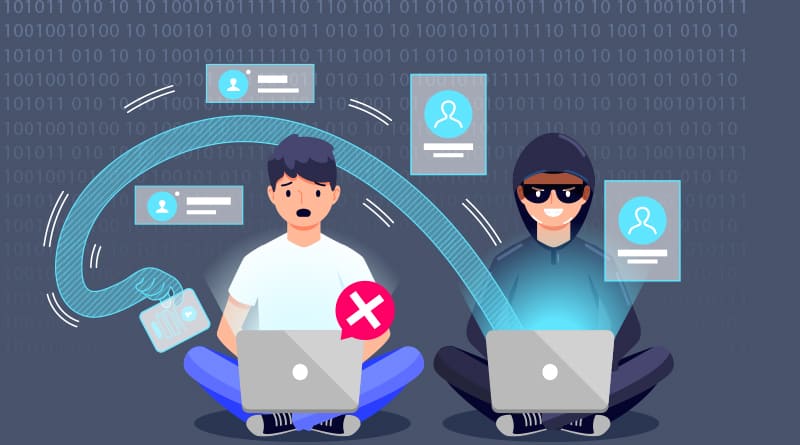Is your website functioning in an unusually different way? Are you witnessing spam content or malicious ads in large numbers? Has Google blocked visitors from your website? If your answer to all these questions is yes, then your website has probably been hacked.
Always remember that when your website is under attack, hackers can cause considerable damage. What’s more worrying is the fact that these hackers install malware on your website that cause the website to malfunction.
When your website is under attack, it displays spam ads and redirects your visitors to unsafe websites, this results in a decrease in your website speed. Moreover, your web host suspends your website and it is blacklisted in the major search engines.
A big disadvantage of a hacked website is that your online popularity takes a blow. Hence, it is of utmost importance to be aware of the crucial signs that depict that a website is hacked. But before delving into the signs, let’s understand a bit more about website hacks.
What is a Website Hack?

A website hack occurs in various forms. Usually, it starts when there are unknown accesses to your web manager account with FTP. FTP or File Transfer Protocol is a unique language used by machines to communicate with one another.
In a majority of the cases, it is used by computers to receive and transmit files. When your account is accessed by a hacker a code is inserted into your website. From displaying obscene messages to promoting your competitor’s products, the code can make your website malfunction.
What’s worse, the code can even install malware on your user’s computers. So as you can see, a hacked website can severely affect your online popularity. With these things in mind, let’s take a glance at some of the signs to know if your website is under attack.
Related: Websites Vulnerable To Hackers
Browsers depict a warning when someone visits your website
If your clients see a warning message while accessing your site from a browser, your site is under attack. If the visitors or users see this message, Google has blacklisted your website. It is worth mentioning here that popular browsers like Chrome, Opera, Firefox, etc., rely on Google’s blacklist mechanism to show warning messages.
Moreover, these warning messages vary based on what Google finds on your website. Usually, people trying to access your website would see a message that says “the site ahead contains malware”.
Your website is deactivated by the hosting company

Always remember that web hosting agencies scan their servers for malicious code regularly. They usually disable the hacked websites to ensure that malware doesn’t spread to other websites. Here are some of the most common reasons why your web host disables your website.
- Your server contains a malware code
- Your website’s server is continuously sending spam or phishing emails
- Your website domain has been blocked by Google
- Your website’s server has high CPU usage because of the presence of malicious codes
You are locked out of your admin account

You have complete control over your website when you have access to the admin panel. So when hackers gain access to your website, they block your admin panel. In simple words, losing access to the admin panel is one of the apparent signs of a hacked website.
When hackers gain access to your admin account, they change the login credentials. Furthermore, these malicious hackers would change your phone number so that you stop receiving alerts.
This also implies that your password doesn’t function properly. When you ask for a reset, you won’t be able to receive the message with the reset link. On the other hand, hackers can develop a new admin account for themselves. By doing that, they would eliminate the privileges associated with the earlier admin account, thereby even if you can log in, you will have limited functionalities and the admin account will be changed.
Presence of unusual JavaScript in your website code

The presence of strange-looking and cryptic JavaScript in the website’s code indicates that your website is under attack. You have to erase the code swiftly to make sure that there are no issues. Note that malicious JavaScript is usually used to steal credit card information, passwords, and other sensitive information.
Hackers rely on JavaScript to redirect visitors to unsafe websites. JavaScript is also responsible for showing pop-ups and spam advertisements. Always remember that malicious JQuery code in your website is an obvious sign of malicious intrusion.
The JQuery code is also responsible for sending credit card information to malicious servers on the transaction page. In simple words, if this happens, then your online store’s popularity will take a back seat. Opting for security audits regularly is a great way to keep these types of malicious codes at bay.
Unusual data found in analytics

As the owner of the website, you have easy access to the analytics of your website. For instance, you can quickly check how many users visited your website in the last week. But if the data you see is unusual, then your website is under attack.
Also, if the number of people leaving your website is high, your website is probably hacked. Always remember that a sudden increase in traffic would happen when cyber-attackers are redirecting users of other websites to yours.
On the other hand, don’t ever think that they are doing this for your advantage. Your site probably has been infected and the users visiting it are also getting defrauded. It is important to note that hackers might also redirect the visitors by altering the website’s internal links to external ones.
It is also quite common on the part of hackers to clone your site to accept fraudulent payments. But at the same time, there exists a wide variety of reasons for the change in analytics data besides hacking. You need to be careful while scrutinizing the analytics data.
Sudden change in website content

Hackers change the content of the website for many reasons. Apart from altering links, it is pretty standard for them to alter the entire content of your website. Moreover, there are chances that they would deface the content or add subtle changes which are difficult to notice.
Note that this change of content would severely affect your website’s popularity. Checking the list of your website’s pages is a great way to keep a watch on the changes to the content. If these depict changes that you think aren’t yours, you should analyze the content carefully.
Moreover, if there is any change in content without your knowledge; take immediate actions to secure the website. Content depicting excessive negativity about your organization can make your website lose popularity.
What should you do when your website is hacked?

To be precise, there is no definite list that depicts that your site is under attack. With the growth of tech platforms, hackers are emphasizing sophisticated ways to execute cyber-attacks. So if you find that your website is under attack, here are the steps you should take.
Investigate Thoroughly
Just because your webpage loads slowly or crashes doesn’t imply that the website is under attack. In simple words, you have to find out the exact reason behind the issue. There are instances when new plugins have made websites slow and unresponsive. Jumping to conclusions without investigating wouldn’t help you. Contact a professional if you need assistance.
Eliminate Faulty Codes
Faulty and unresponsive codes can make you prone to cyber-attacks. You should take a close look at the code. Moreover, removing unauthorized plugins is the best way to make your site responsive. Update the software platforms on which your website operates.
Secure your Website with a Firewall
One of the best ways to safeguard your website is to opt for a firewall. A firewall would help prevent any hacks in the future. With a web application firewall, you would be able to block malicious bots from entering your website.
Importance of a Good Web Host
No doubt, it is of great importance to implement security measures of your own. But if you have a good web host, they will also provide an array of solutions to keep your site safe. These would usually include strong firewalls, malware detection tools, SSL certificates, etc. If you sign up for any web hosting plan with MilesWeb, you will get a free SSL certificate and malware and virus detecting and prevention features. This keeps your website and data safe.
Remove Google Blacklist
It would be best if you told Google that your website is clean so that they can remove the blacklist. But note that Google would review your website to make sure that there is no malware. Moreover, you should also consult your hosting provider and inform them that your site has been cleaned. They would verify that the site is clean to eliminate suspension.
Related: 9 Efficient Strategies For Securing Your Website Against hacking Attempts
Over to you…
No doubt, dealing with a hacked website is a true nightmare. Also, cleaning and fixing an infected website is time-consuming and affects your business’s popularity. So you must take proper preventive measures.
- Opt for secured and reputed plugins.
- Opt for a secured web hosting platform.
- Perform website security audits.
- Keep monitoring the factors mentioned above.
















